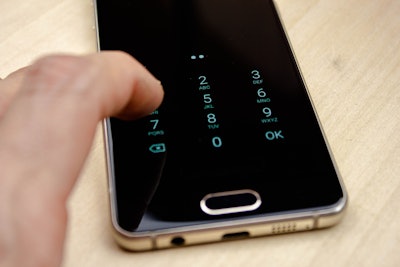Aside from diesel in your truck’s fuel tank and food in your belly, few things are as essential to keep you moving down the road as your smartphone.
It’s not an overstatement to call it your lifeline. It keeps you connected to your dispatcher, allows you to stay in touch with your family, and is there for you in case of a roadside emergency or breakdown.
However, how often do you take steps to keep it — and you — safe and secure?
Here are a few tips to ensure your smartphone is there when you need it and is not exploited by those who might seek to access your personal information for nefarious purposes.

- Have a secure password. Resist the temptation to use a password that is short and easy to enter. And, be sure not to use one that you already use for another of your digital devices. Include several numbers and special characters in any password you create. Consider using a passwor manager.
- Keep your operating system up to date. Operating systems are often updated to make them more secure or to fix a security flaw. Staying current can help you avoid any hackers who might wish to exploit a security gap in an older version of your operating system.
- Be cautious of the apps you install. First and foremost, only install apps from your official app store. Those outlets do a good job of policing troublesome apps, but still be cautious of what you click on. Do your research. Read reviews and user comments. And, as much of a pain as it is, read the Terms and Conditions to see what, if any, of your personal data it will access.
- Remove apps you no longer use. You may have installed an app in the past but you no longer use or need it. Just delete it. It removes any vulnerability.
- Be warey of text messages. Cybercrooks are not above sending you phony text messages masqurading as your bank or a utility or an online service you subscribe to. Often they’ll make it sound important you respond quickly. Don’t! Better safe than sorry, so contact the bank directly and not respond to the text message
Safety is key to your life on the road. That goes for your smartphone as well as your driving.